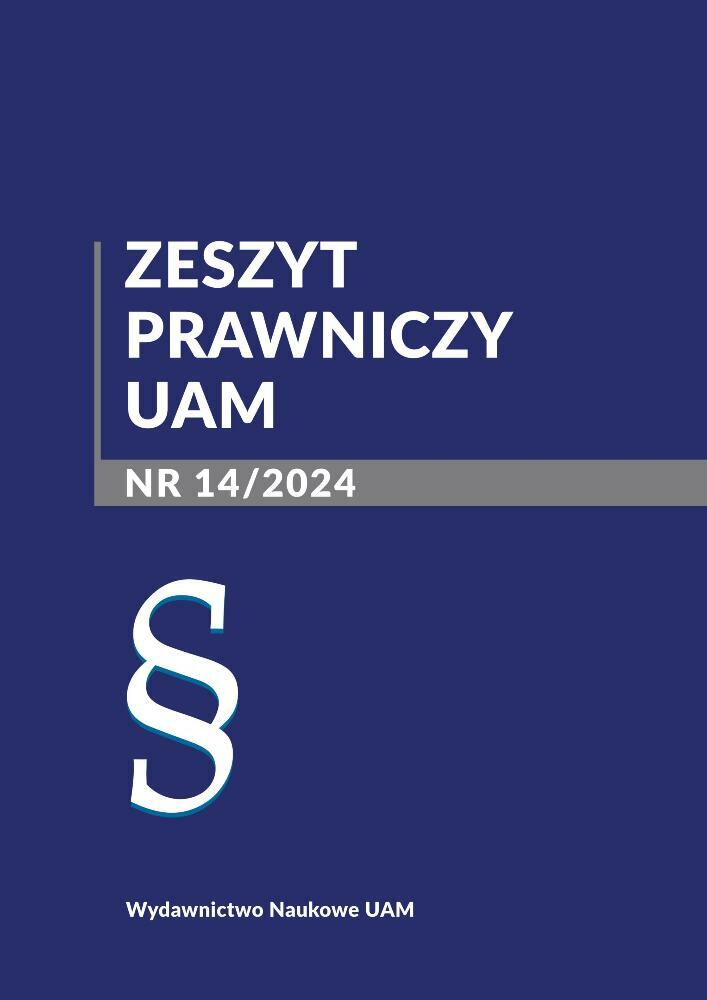Abstrakt
W erze cyfrowej międzynarodowe kampanie dezinformacyjne urastają do rangi wyzwania podstawowego, towarzyszącego niemal każdemu konfliktowi w sferze stosunków międzynarodowych. Wielowymiarowa skuteczność tych kampanii – szczególnie wobec upowszechnienia narzędzi generatywnej sztucznej inteligencji – nie pozostawia wątpliwości, że w kolejnych latach będziemy obserwowali rozwój zastosowań tego rodzaju operacji i ich rosnącą popularność. W opracowaniu ujęto definicję dezinformacji oraz podjęto jej umiejscowienie w siatce pojęć bliskoznacznych. Autor przedstawia konflikt zachodzący między działaniami aktorów międzynarodowych a prawami człowieka, rozpatrując dezinformację z perspektywy jej ujemnych skutków postrzeganych w wymiarze bezpośrednim i pośrednim – przez pryzmat konsekwencji konieczności ochrony bezpieczeństwa narodowego aktorów będących celem ataku. Opisana oraz oceniona zostaje również potencjalna klasyfikacja prowadzenia kampanii dezinformacyjnych w odniesieniu do ram prawa międzynarodowego publicznego.
Bibliografia
Arcos, R., Chiru, I., Ivan, C. (2023). Routledge Handbook of Disinformation and National Security, Abingdon, Oxon and New York, NY. DOI: https://doi.org/10.4324/9781003190363
Baade, B. (2018). Fake News and International Law. “European Journal of International Law” 29(4): 1357–1376. DOI: https://doi.org/10.1093/ejil/chy071
Colomina, C., Sánchez Margalef H., Youngs R. (2022). The Impact of Disinformation on Democratic Processes and Human Rights in the World. Brussels.
Craig, P.P., de Búrca G. (2022). EU Law: Text, Cases, and Materials. New York.
Crawford, J. (2013). State Responsibility: The General Part. Cambridge. DOI: https://doi.org/10.1017/CBO9781139033060
De Brabandere, E. (2019). Propaganda, [in:] A. Peters and R. Wolfrum (eds.), The Max Planck Encyclopedia of Public International Law. Oxford.
Espaliú-Berdud, C. (2023). Use of Disinformation as a Weapon in Contemporary International Relations: Accountability for Russian Actions against States and International Organizations, “El Profesional de la información” 32(4). DOI: https://doi.org/10.3145/epi.2023.jul.02
Hijmans, H. (2016). The European Union as Guardian of Internet Privacy: The Story of Art 16 TFEU. Brussels. DOI: https://doi.org/10.1007/978-3-319-34090-6
van Hoboken, J., Fathaigh, R.Ó. (2021). Regulating Disinformation in Europe: Implications for Speech and Privacy. “UC Irvine Journal of International, Transnational, and Comparative Law” 6: 9–36.
Kulesza, J. (2024). Human Rights and Social Media: Challenges and Opportunities for Human Rights Education, [in:] A. Mihr, C. Pierobon (eds.), Polarization, Shifting Borders and Liquid Governance. Cham: 139–154. DOI: https://doi.org/10.1007/978-3-031-44584-2_8
Lahmann, H. (2022). Infecting the Mind: Establishing Responsibility for Transboundary Disinformation, “European Journal of International Law” 33(2): 411–440. DOI: https://doi.org/10.1093/ejil/chac023
O’Shaughnessy, N.J. (2020). From Disinformation to Fake News: Forwards into the Past, [in:] P. Baines, N.J. O’Shaughnessy, N. Snow (eds.), The SAGE Handbook of Propaganda. London: 55–70. DOI: https://doi.org/10.4135/9781526477170.n5
Pentney, K. (2024). The Right of Access to ‘Reliable’ Information Under Article 10 ECHR: From Meagre Beginnings to New Frontiers. “European Convention on Human Rights Law Review” 5(2): 230–267. DOI: https://doi.org/10.1163/26663236-bja10093
Porcedda, M.G. (2023). Cybersecurity, Privacy and Data Protection in EU Law: A Law, Policy and Technology Analysis. Oxford and New York. DOI: https://doi.org/10.5040/9781509939428
Schmitt, M.N. (2018). “Virtual” Disenfranchisement: Cyber Election Meddling in the Grey Zones of International Law. “Chicago Journal of International Law” 19(1): 30–67.
Schmitt, M.N. (2018). Tallinn Manual 2.0 on the International Law Applicable to Cyber Operations. Cambridge. DOI: https://doi.org/10.1017/9781316822524
Stasi, M.L., Parcu, P.L. (2021). Disinformation and Misinformation: The EU Response, [in:] P.L. Parcu, E. Brogi (eds.), Research Handbook on EU Media Law and Policy. Cheltenham: 407–426. DOI: https://doi.org/10.4337/9781786439338.00030
Licencja
Prawa autorskie (c) 2024 Jakub Kowalewski

Utwór dostępny jest na licencji Creative Commons Uznanie autorstwa 4.0 Międzynarodowe.

